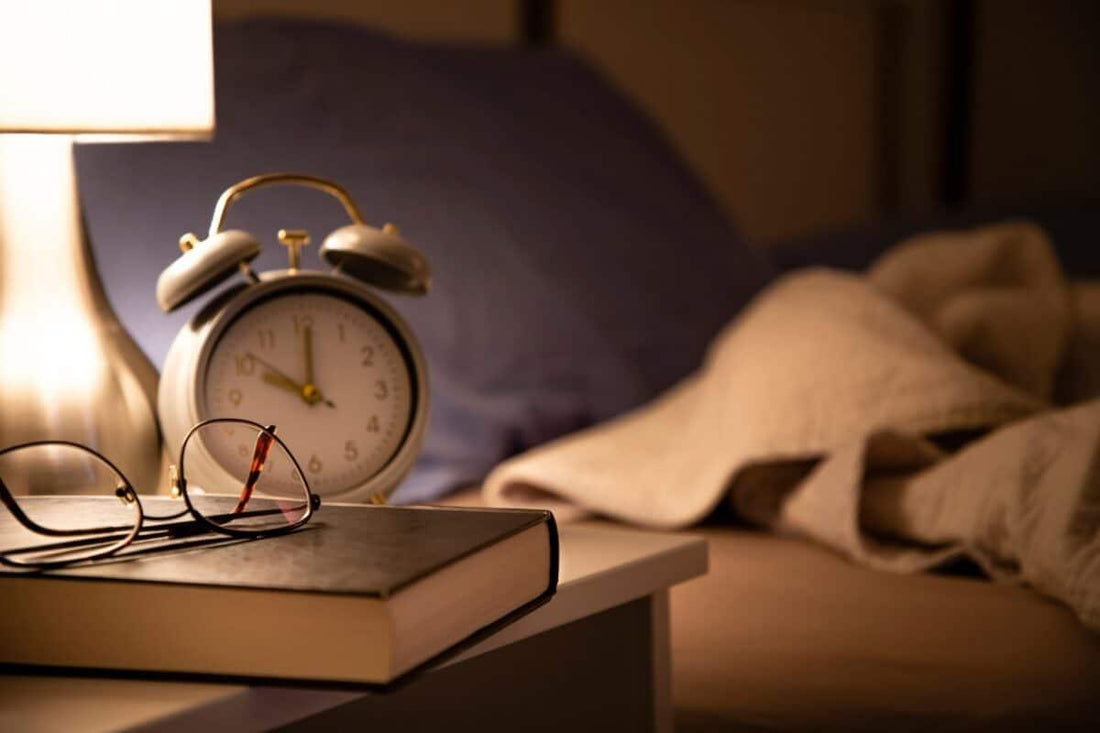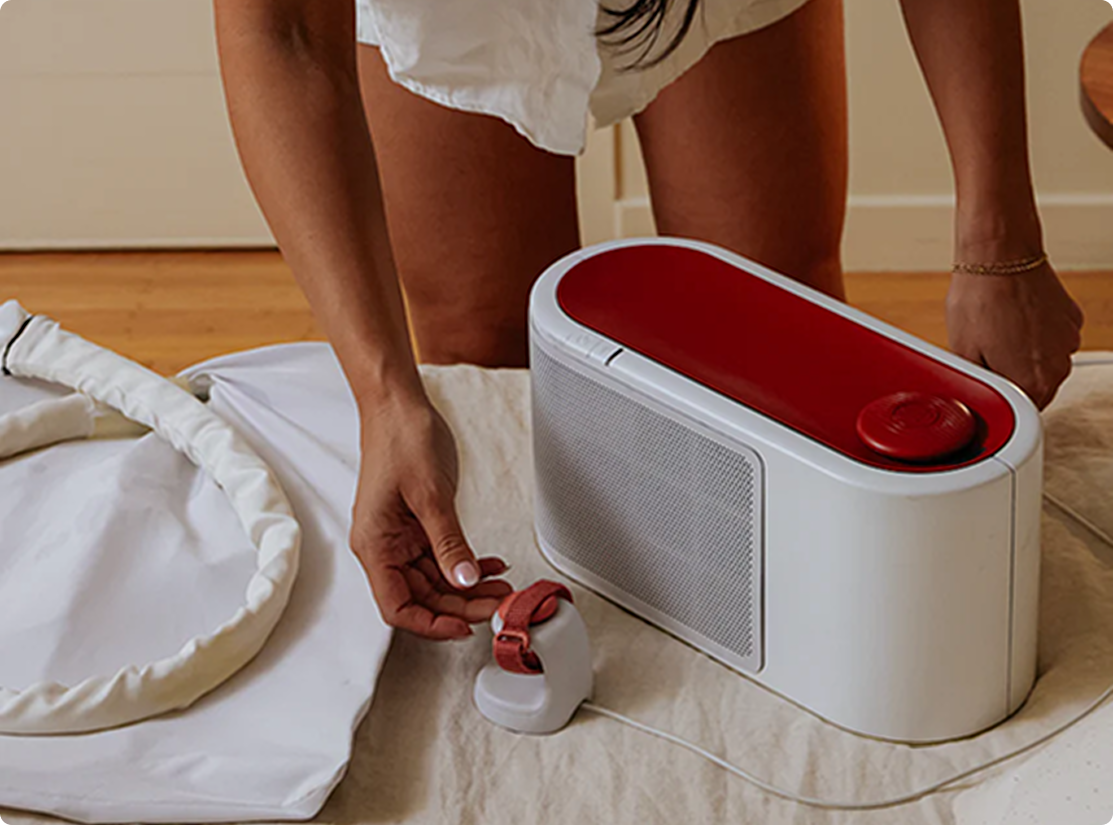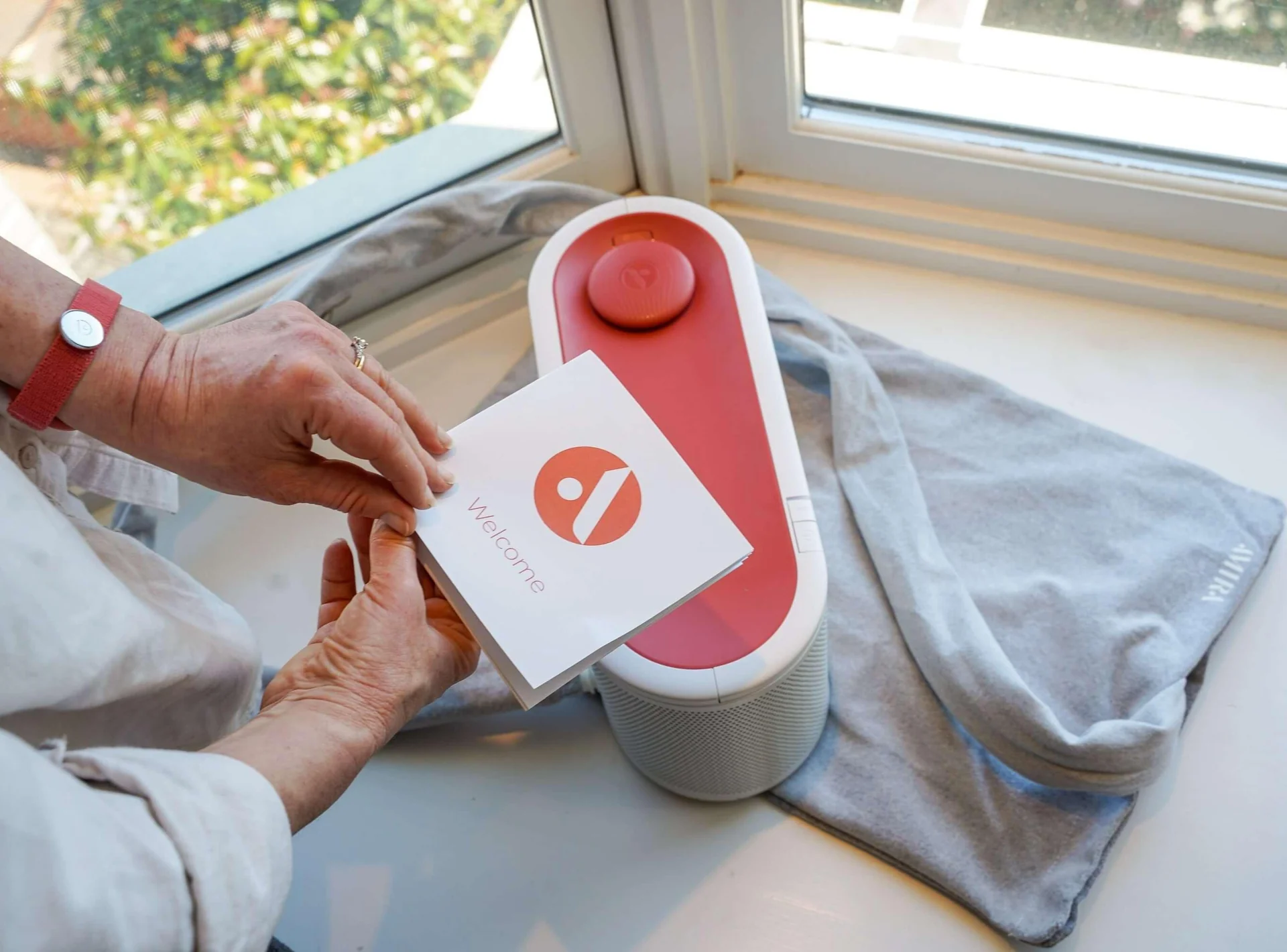
How to Create a Sleep-Friendly Environment During Menopause
Discover how to create a sleep-friendly environment during menopause. Get practical tips on optimizing your bedroom, choosing the right bedding, and adopting relaxing routines for restorative sleep. Explore our Amira products specifically designed to improve sleep quality during this transitional period
- Written by: Corentin Hugot
Menopause is a natural phase in a woman's life that typically occurs between the ages of 45 and 55. During this time, women experience significant hormonal changes that can lead to various symptoms, including sleep disturbances. Creating a sleep-friendly environment is crucial for managing these changes and ensuring restful, restorative sleep.
Understanding Menopausal Sleep Issues
Menopause brings about several changes that can affect sleep quality. Common sleep disturbances during menopause include insomnia, night sweats, and frequent awakenings. These issues are primarily caused by fluctuations in hormones such as estrogen and progesterone. According to the National Institute on Aging, these hormonal changes can disrupt the body's temperature regulation and circadian rhythms, making it harder to fall and stay asleep.
Optimizing Your Bedroom for Better Sleep
Temperature Control
Maintaining an ideal room temperature is essential for good sleep. The National Sleep Foundation suggests that a cool room, between 60-67°F (15-19°C), is optimal for sleep. Using a fan, air conditioning, or breathable bedding can help keep the room cool and comfortable, reducing the likelihood of night sweats and overheating.
Lighting
Light exposure affects the production of melatonin, a hormone that regulates sleep. Minimizing light exposure in the bedroom can help improve sleep quality. According to the Mayo Clinic, using blackout curtains and reducing screen time before bed can enhance melatonin production and promote better sleep. Additionally, consider using dim, warm lighting in the evening to signal to your body that it's time to wind down.
Noise Reduction
Noise pollution can significantly disrupt sleep. Identifying and mitigating sources of noise in the bedroom is crucial. The Sleep Foundation recommends using earplugs, white noise machines, or soundproofing solutions to create a quieter sleep environment. These tools can help mask disruptive sounds and create a peaceful atmosphere conducive to sleep.
Choosing the Right Bedding
Mattress and Pillow Selection
A supportive mattress and pillows are vital for sleep quality, especially during menopause. The Cleveland Clinic advises choosing a mattress that provides adequate support and comfort, tailored to your sleep preferences. Memory foam or latex mattresses are often recommended for their ability to contour to the body and relieve pressure points.
Bedding Materials
Selecting breathable, moisture-wicking fabrics for bedding can help regulate body temperature and improve sleep comfort. Cotton, bamboo, and linen are excellent choices for their breathability and ability to wick away moisture. Hypoallergenic options are also beneficial for those with allergies, as they reduce the presence of allergens that can disrupt sleep.
Creating a Relaxing Pre-Sleep Routine
Relaxation Techniques
Engaging in relaxation techniques before bed can help prepare your body and mind for sleep. Deep breathing exercises, such as diaphragmatic breathing, can reduce stress and promote relaxation. The American Psychological Association recommends deep breathing exercises as an effective way to manage stress and improve sleep quality.
Mindfulness and Meditation
Mindfulness and meditation practices have been shown to improve sleep by reducing stress and anxiety. A study by the National Center for Complementary and Integrative Health found that mindfulness meditation can enhance sleep quality and reduce insomnia symptoms. Incorporating simple meditation exercises before bed can create a calming pre-sleep routine.
Lifestyle Adjustments for Better Sleep
Diet and Nutrition
What you eat can significantly impact your sleep quality. Foods rich in tryptophan, magnesium, and melatonin can promote better sleep. For more information on how diet affects sleep, check out our blog post on Diet and Menopause. Avoiding stimulants like caffeine and heavy meals before bed can also help prevent sleep disturbances.
Exercise and Physical Activity
Regular physical activity can improve sleep quality by reducing stress and anxiety. The Centers for Disease Control and Prevention (CDC) recommends at least 150 minutes of moderate-intensity aerobic activity per week for optimal health benefits, including better sleep. However, it's best to avoid vigorous exercise close to bedtime, as it can be stimulating.
Managing Stress
Stress is a significant factor that can disrupt sleep, especially during menopause. Effective stress management techniques, such as journaling, yoga, and spending time in nature, can improve sleep quality. For more tips on managing stress during menopause, read our blog post on Stress Management and Menopause.
Using Technology to Enhance Sleep
Sleep Tracking Apps
Tracking your sleep patterns can help identify issues and improve sleep quality. Sleep tracking apps can provide insights into your sleep cycles, duration, and disruptions. Some popular sleep tracking apps recommended by the American Academy of Sleep Medicine include SleepScore, Sleep Cycle, and Pillow. These apps can help you monitor your sleep and make necessary adjustments to your routine.
White Noise Machines and Sleep Aids
White noise machines can help mask disruptive sounds and create a soothing environment for sleep. According to the National Sleep Foundation, white noise machines can be particularly beneficial for people living in noisy environments. Other useful sleep aids include eye masks, earplugs, and aromatherapy diffusers with calming scents like lavender and chamomile.
Promoting Amira's Menopause Products
Overview of Amira’s Products
Amira offers a range of products designed to support women during menopause, including supplements, sleep aids, and wellness products. Our products are formulated with natural ingredients that promote relaxation, reduce stress, and improve sleep quality. Check out our Amira Menopause Products to find the right solutions for your needs.
Integrating Amira’s Products into Your Sleep Routine
Incorporating Amira’s products into your daily routine can significantly enhance your sleep quality. For instance, our sleep supplements are formulated with ingredients like melatonin, magnesium, and valerian root, which are known to support restful sleep. Read our customer testimonials to see how our products have helped other women achieve better sleep during menopause.
Conclusion
Creating a sleep-friendly environment during menopause involves making several adjustments to your bedroom, lifestyle, and daily routines. By optimizing your bedroom for better sleep, choosing the right bedding, creating a relaxing pre-sleep routine, making lifestyle adjustments, and incorporating helpful technology and products, you can significantly improve your sleep quality. Amira’s products are designed to support you on this journey, helping you achieve restful, restorative sleep during menopause.
FAQs
-
What is the ideal room temperature for sleep during menopause? The ideal room temperature for sleep during menopause is between 60-67°F (15-19°C), as recommended by the National Sleep Foundation.
-
How can I make my bedroom darker without blackout curtains? You can make your bedroom darker by using eye masks, covering electronic lights, and ensuring that your windows are well-covered with thick curtains or blinds.
-
Are there specific foods that can help improve sleep during menopause? Yes, foods rich in tryptophan, magnesium, and melatonin can promote better sleep. For more information, read our blog post on Diet and Menopause.
-
What types of exercises are best for promoting better sleep? Regular physical activities like walking, swimming, and yoga can improve sleep quality. Avoid vigorous exercise close to bedtime as it can be stimulating.
-
How can Amira’s products help with menopausal sleep issues? Amira’s products are formulated with natural ingredients that promote relaxation, reduce stress, and improve sleep quality. Explore our range of Amira Menopause Products to find the right solutions for your needs.

Sleep Cool, Wake Refreshed
Terra’s smart cooling system stops hot flashes before they wake you.
Predicts & cools in seconds
No noise, no interruptions
Wake up refreshed





